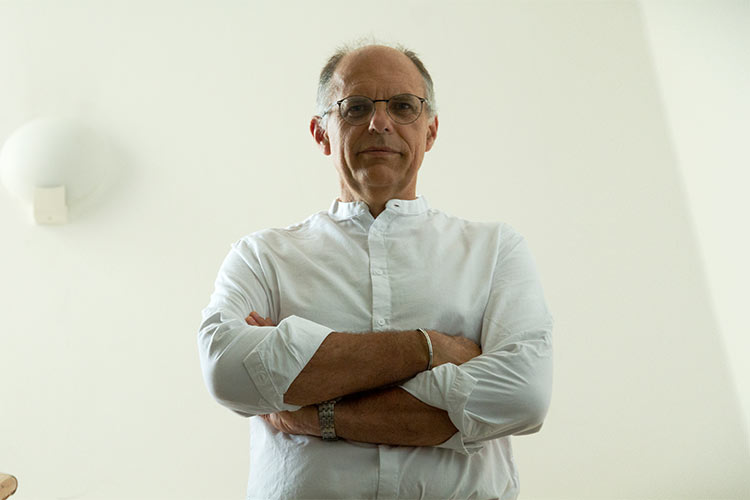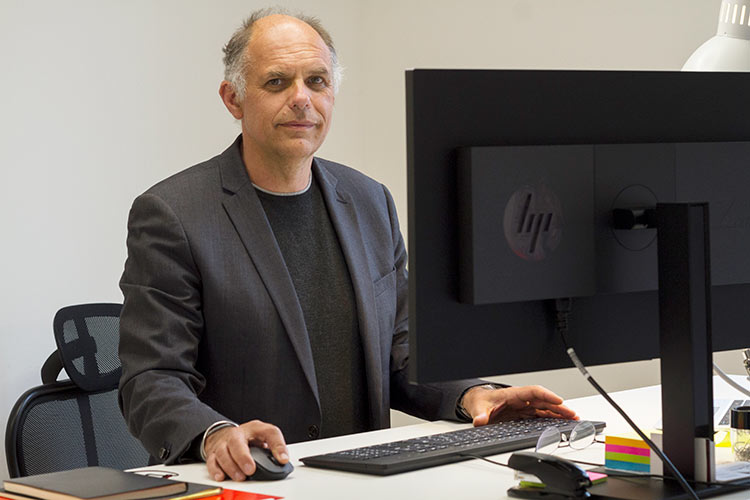Our mandate supports Serbia’s rapprochement with the EU through the financing of sustainable and innovative projects that have a strong environmental and social dimension.
The French Development Agency (AFD) is this year celebrating 80 years since its establishment. It is present in all parts of the world, but the Western Balkan region is its first bureau in Europe.
What motivated AFD to come to this region?
AFD is the public operator in charge of implementing the French government’s international solidarity and development policy. Created 80 years ago, AFD Group today comprises three entities: AFD, the development bank in charge of public sector and NGO financing; Proparco, which is responsible for private sector financing; and Expertise France, tasked with leading technical cooperation. AFD Group finances, supports and accelerates transitions towards a more coherent and resilient world.
Since September 2019, I have had the pleasure – together with my growing and dynamic team – to deploy AFD’s activities in the Western Balkans, under a mandate granted by the French Building A More Resilient World Our mandate supports Serbia’s rapprochement with the EU through the financing of sustainable and innovative projects that have a strong environmental and social dimension. Government for AFD to contribute to France’s reinvestment strategy in the region. In this context, the mission of AFD’s Belgrade-based regional office is to promote sustainable economic development and support the European integration ambitions of Western Balkan countries. We operationalise this mandate through the financing of investments and policy reforms that foster convergence with EU norms and standards, as well as supporting the implementation of the Paris Agreement on climate change.
Which of the UN Sustainable Development Goals (SDGs) are in your focus in the Western Balkans and Serbia; and how do they relate to broader EU objectives?
The SDGs are indeed at the heart of AFD’s strategy and are fully integrated into all aspects of our work and financing activities.
AFD invests in areas as diverse as climate change, a cross-cutting approach that guides all of AFD’s activities, as well as gender equality, biodiversity, health, education, digital technology, entrepreneurship, energy, mobility and transport, but also sports and the cultural and creative industries. Through a wide range of financial tools (sovereign and non-sovereign loans, public policy and investment loans, bank intermediation loans, guarantees etc.), grants and non-financial assistance, partnerships and peer-to-peer cooperation, AFD Group supports governments, local authorities, state-owned and private companies, as well as civil society organisations, in their endeavours towards a greener, more inclusive and climate-resilient future.

AFD’s objective is to ensure that its operations are fully aligned with the Paris Climate Agreement, the success of which is a core component of EU policies and objectives at the international level. In this respect, priority will be given to operations that support the transition to a low-carbon economy, all sectors combined.
For instance, ensuring the mobility of people and goods is one of the essential conditions for achieving the SDGs: it is essential for people to have access to employment and essential services (health, education); for the efficient and sustainable functioning of a productive economy; and for cities to remain efficient, breathable and “liveable”. Peaks in air pollution are a cruel reminder of the urgency of addressing this issue, and AFD stands ready to support the authorities and relevant stakeholders in that regard.
AFD’s objective is to ensure that its operations are fully aligned with the Paris Climate Agreement, the success of which is a core component of EU policies and objectives at the international level
How does your work contribute to the EU accession agenda, in particular cluster 3 – Competitiveness and Inclusive Growth and cluster 4 – the Green Agenda and Infrastructure Connectivity?
Our mandate supports Serbia’s rapprochement with the EU through the financing of sustainable and innovative projects that have a strong environmental and social dimension.
Beyond AFD’s current active support for the implementation of the legal framework for adaptation to climate change, our action aims – in the framework of our mandate to support Serbia’s EU accession process – to encourage investments that further current transitions, such as the energy transition, but also territorial and ecological transitions. Various funding programmes are currently being prepared to support the fight against flooding, with climate change causing that risk to become more frequent and intense, the fight against air, soil and water pollution, waste management, support for low-carbon mobility (public transport, non-motorised transport) and the digitalisation of the economy.
As you’ve stated previously, the agency aims to invest up to 400 million euros in the region by the end of this year. When it comes to helping Western Balkan countries become part of the EU, how do you decide between national and regional interests?
AFD Group favours partnerships for its operations in the region. However, a few sustainable transnational initiatives bring together all the countries of the Western Balkans. In this respect, the first support provided by AFD at the start of its activity aimed to strengthen regional integration through the establishment of a “smart cities” strategy to support the development of the Balkan capitals since 2019 (Smart City), protection of the Balkans’ rich biodiversity, or the project dedicated to supporting young entrepreneurs in the Western Balkans, in cooperation with the Regional Youth Cooperation Office (RYCO).
Finally, AFD can mobilise and manage EU funds to strengthen the impact of its actions. As mentioned, our mandate is to support the convergence of the Western Balkan countries with the EU’s common standards and, ultimately, to support the acceleration of their EU accession processes. In that respect, by promoting alignment with EU social, technical and environmental best practices and standards, AFD’s actions aim to contribute to improving the quality of development processes.

Thus, after only two years of activity in the region, AFD has already granted more than 300 million euros (excluding the private sector) and intends to increase its commitments to 200 to 300 million euros annually by 2021, in support of the advancement of the relevant sector reform agendas, which are essential elements for the region’s future development.
Could you tell us more about the projects you’re supporting in Serbia, which include the construction of the Belgrade Metro rail system and the automation of management of the electricity distribution network – both of which are massive, financially demanding projects? What is your role in them?
An Intergovernmental Agreement was signed in November 2020 to support the authorities in carrying out structuring projects in the field of public transport (Belgrade Metro) and energy. This support, both financial and in terms of expertise, is independent of the aid provided to Serbia by AFD.
After only two years of activity in the region, AFD has already granted more than 300 million euros (excluding the private sector) and intends to increase its commitments to 200 to 300 million euros annually by 2021
To what extent does the Western Balkans Investment Framework (WBIF) – as a European financial facility involving the European Commission, EU member states, Western Balkan countries and the main bilateral and multilateral donors operating in the region – counterbalance other sources of development assistance that are available to the region, such as that of China, for example?
One of the key elements of our intervention is the mobilisation of European resources, for which AFD is accredited. It is with this in mind that AFD has integrated, since 2018, the WBIF.
This EU blending platform enables the pooling of resources available in the form of grants and loans, but also technical assistance from different partner organisations, in five priority sectors: transport, energy, environment, social sector and private sector development. Several projects are currently being implemented by AFD under this platform, which contributes to the quality and financial attractiveness of the support provided to Serbia and other Western Balkan countries by “Team Europe”, i.e., the EU, together with European development banks and cooperation agencies.
You are also supporting the Regional Youth Cooperation Organisation (RYCO), which aims to promote cooperation between young entrepreneurs in the Western Balkans. Could you outline an example of cooperation that best reflects your goals in this area?
Indeed, the first financing granted by AFD in the region was aimed at the NGO sector in co-financing with RYCO. The first call for applications was a resounding success, with more than 20 projects (of the 250 submitted) now being supported at the maturation and implementation stage. This allows the creation of a network of young entrepreneurs in all countries of the region. A second call for applications should be launched in 2022.
Thus, since 2019, AFD has been resolutely committed to supporting Serbia in particular, and the Western Balkans more broadly, on the road to EU membership. This is the meaning of our team’s commitment on the ground, of AFD and France’s action alongside national authorities, the private sector and civil society actors.